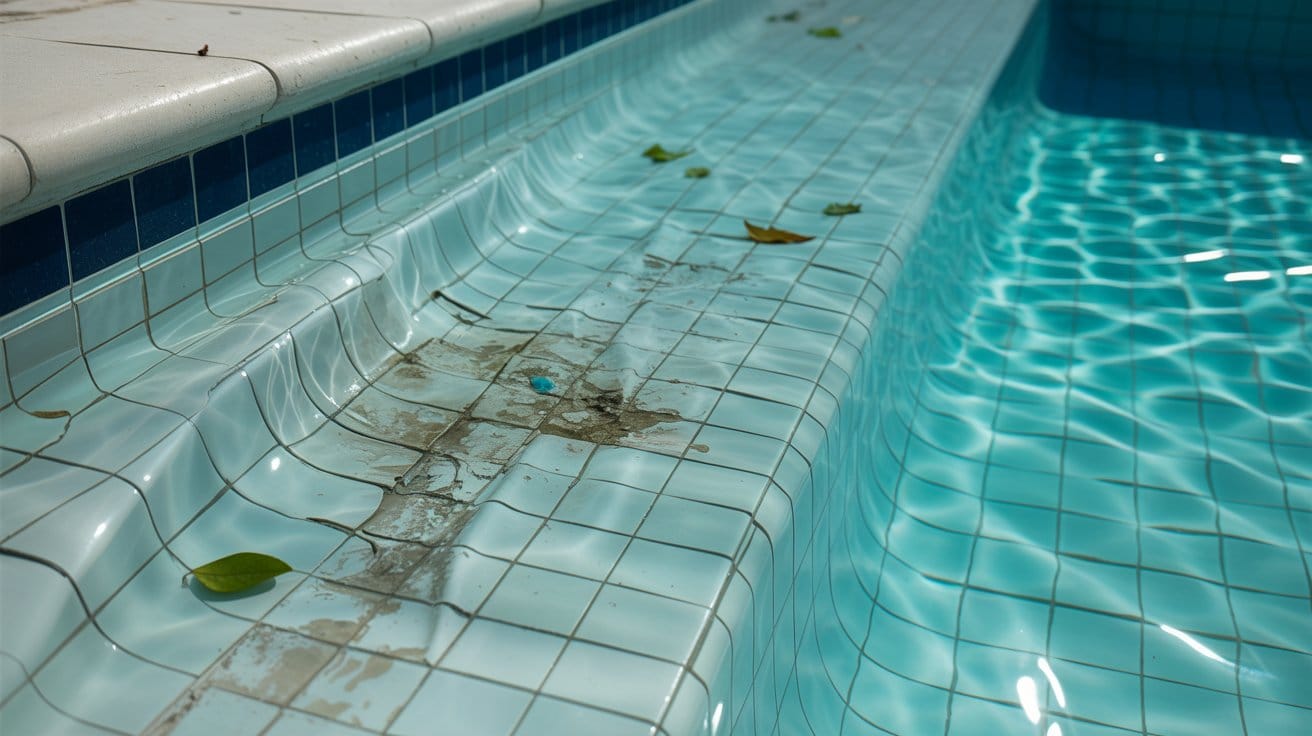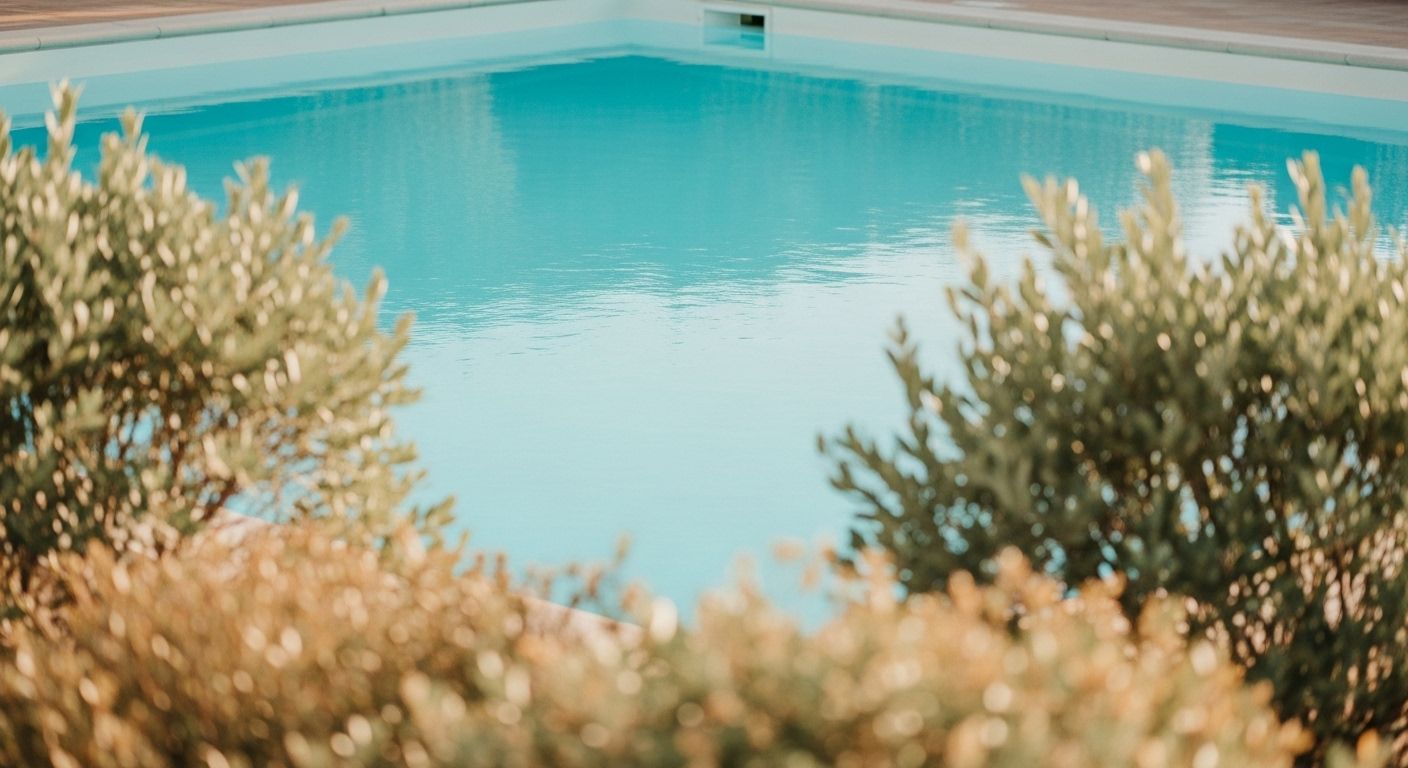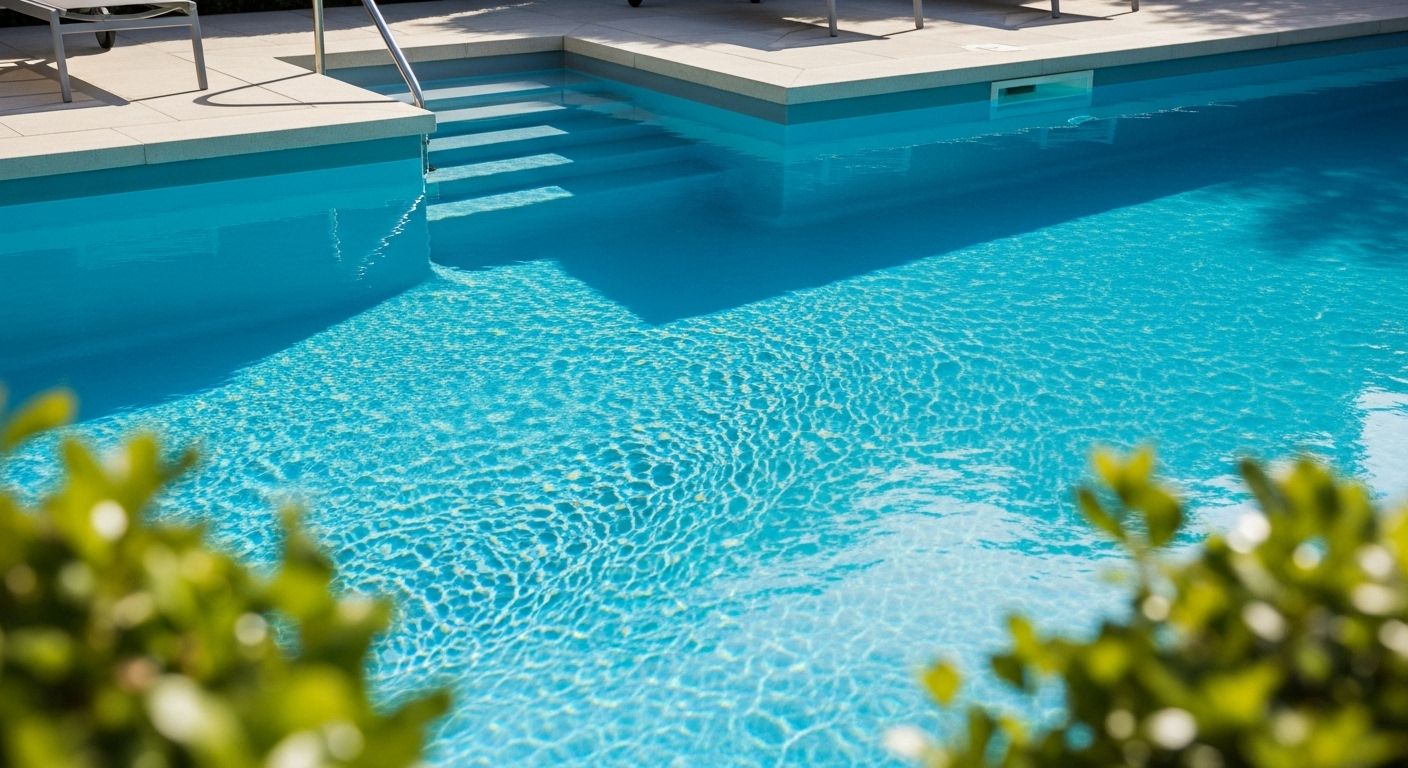The 5 Most Common Causes of Pool Leaks – and How to Prevent Them
Discover the five most common causes of pool leaks - cracks in the shell, faulty plumbing, equipment issues, damaged liners, and worn fittings - and learn expert prevention tips from The Leak Geeks.

The 5 Most Common Causes of Pool Leaks – and How to Prevent Them
A sparkling backyard pool is a source of joy, relaxation, and community gathering – especially in Columbia’s long, warm seasons. But nothing can drain your fun (and your wallet) faster than an unexpected pool leak. At The Leak Geeks, we understand how daunting the mere suspicion of a leak can be—especially with the horror stories of torn-up patios and expensive repairs. That’s why, with our non-invasive, precision leak detection, we help local homeowners stay ahead of problems, save their deck and their dollars, and keep the water where it belongs: in your pool.
Below, we break down the five most common causes of pool leaks, explain how they develop, and share expert prevention tips so you can keep your pool worry-free all year—without ever needing to dig up your yard.
1. Cracks in the Pool Shell
Why It Happens
Whether your pool is concrete, gunite, fiberglass, or has a vinyl liner, the shell is built to endure years of water pressure and changing weather. However, over time, cracks can develop due to ground movement, settling, improper installation, or exposure to freeze/thaw cycles during colder months. Tree roots, shifting soils, and seismic activity (rare but possible in our region) can also contribute.
Warning Signs
- Small or hairline cracks visible along the walls, floor, or steps
- Tile separation or missing grout
- Sudden, unexplained drops in water level
Prevention Tips
- Schedule routine pool inspections, especially after winter or storms.
- Maintain correct water chemistry to avoid the weakening of plaster or grout.
- Address drainage issues around the pool—standing water near the shell increases soil movement.
- For vinyl pools, monitor for stretching or wrinkling—these can precede or indicate cracking.
- Consider a professional resurfacing every few years to seal microcracks before they worsen.
Leak Geeks Pro Tip
If you see a crack, don’t panic. Most can be patched easily if found early. With our non-invasive detection tools, we pinpoint cracks without cutting, draining, or damaging your deck—a safer, cleaner, and faster approach.
2. Faulty or Deteriorating Pool Plumbing
Why It Happens
Your pool’s underground plumbing is out of sight—and sometimes out of mind until a leak causes a big problem. Columbia’s soils can shift with rain and drought cycles, putting stress on pipes. Age and ground movement can cause pipes to crack, joints to loosen, or entire sections to collapse. Root systems from nearby trees or shrubs can also intrude and cause damage.
Warning Signs
- Wet spots or soggy ground near the pool or deck
- Air bubbles blowing from your return jets, despite a well-primed pump
- Drop in water level even when pool equipment is off
- Unusually high water bills for homes with auto-fill
Prevention Tips
- Avoid planting large trees or shrubs near the pool—roots can disrupt plumbing.
- Monitor and replace aging equipment and pipes routinely.
- Ask for a pressure test during your annual inspection to catch weaknesses before they break.
- Make sure the soil around your pool is properly compacted and draining away from the pool structure.
Leak Geeks Pro Tip
Our team uses advanced acoustic and electronic technologies to “listen” for hidden leaks underground—detecting issues with pinpoint accuracy and no excavation. If your pool’s plumbing is part of the problem, we’ll locate the exact spot and provide a fix or hand-off to a trusted, certified repair partner.
3. Leaking Pool Equipment (Pumps, Filters, Heaters)
Why It Happens
The equipment pad is the heart of your pool’s circulation—pumping, filtering, and sometimes heating your water. Over time, O-rings, gaskets, filter housings, and valves can deteriorate, dry out, or crack. Leaky equipment not only wastes water, but can also lead to low pressure, reduced circulation, or even mechanical failure if not caught early.
Warning Signs
- Persistent wet spots under or around pool equipment
- Unusual hissing or spraying sounds
- Difficulty priming pump or loss of prime on start-up
- Visible drips or puddles when equipment’s running
Prevention Tips
- Schedule regular equipment tune-ups and replace O-rings, gaskets, and seals as recommended.
- Keep debris, leaves, and critters away from the equipment pad to prevent short circuits or housing damage.
- Upgrade older pumps and filters to modern, efficient models with leak-sensing features.
- Immediately address any visible drips or moisture—it’s much less costly than repairing flood damage or replacing burned-out motors.
Leak Geeks Pro Tip
We check your equipment first, as fixing a pump leak is often simpler (and cheaper) than chasing phantom “pool leaks” underground. Our no-excavation, non-invasive scan quickly narrows down the source so you don’t waste time or money on unnecessary repairs.
4. Failing or Damaged Pool Liners
Why It Happens
Vinyl liners offer a smooth and attractive finish, but they’re also vulnerable to punctures, warping, or seam splits due to sharp objects, excessive pool toys, pet claws, or simple wear and tear over time. Sun exposure can make the material brittle and less elastic, increasing the risk for tears.

Warning Signs
- Wrinkles, bubbles, or stretching in the liner
- Water behind the liner (you may see bulges if water is trapped)
- Visible rips, holes, or splitting at seams
- Unexplained drop in pool water level
Prevention Tips
- Only use pool-safe toys and accessories in and around the pool.
- Avoid letting pets (especially large dogs) claw or try to retrieve objects from the pool.
- Replace liners every 7–10 years (or sooner if you notice damage).
- Use a pool cover when not in use to prevent debris and animal entry.
- Regularly check the liner at waterline and at steps for small nicks that can grow into larger tears.
Leak Geeks Pro Tip
We use dye tests and sensitive moisture meters to pinpoint even the smallest liner leaks—even underwater or behind ladders—so you don’t waste money replacing an entire liner for a tiny tear.
5. Damaged or Poorly Sealed Pool Fittings and Skimmers
Why It Happens
Every pipe, skimmer, light, and return jet entering your pool shell is a potential weak point. Over time, water chemistry, shifting decks, and vibration from pumps can cause seals to dry out or shrink, caulking to fail, or fittings to crack. Water can begin leaking from these joints without any obvious surface signs.
Warning Signs
- Persistent wet spots, particularly around skimmers or pool lights
- Visible cracks in skimmer baskets, return fittings, or light fixtures
- Bubbles in the pool or at the pump, indicating air entry due to a compromised fitting
- Ay “drifting” tiles or loose returns
Prevention Tips
- Routinely inspect skimmers and return outlets—cracks or loose caulking should be immediately repaired.
- Reapply waterproof pool-grade sealant around fittings as part of your seasonal maintenance.
- Replace plastic fittings that show sun damage or brittleness before they fail completely.
- Never ignore a small, persistent puddle or damp spot by the pool edge.
Leak Geeks Pro Tip
Our process includes scanning every return, skimmer, and light niche using non-invasive equipment, so you get a full report—marked schematic and photos included—of any weak joints or emerging problems, before they can do major damage.
Your No-Stress Leak Prevention Checklist
Keeping your pool leak-free doesn’t require a chemistry degree or superhuman diligence—just a plan:
- Weekly: Check water level, inspect visible pool surfaces for cracks or damage, and make sure the ground around the pool is dry.
- Monthly: Inspect fittings, skimmers, and liner or shell for new cracks, bubbles, or stretching.
- Seasonally: Schedule a professional leak scan and pressure test, especially before and after heavy use or winterization.
- After major storms: Remove debris, check for soil shift, and ensure proper drainage away from pool and equipment.
With regular maintenance and a watchful eye, you can avoid most leaks entirely—and if you suspect something’s off, get professional help sooner rather than later.
Why Choose Leak Geeks? The Local Leak Detection Advantage
Columbia homeowners have trusted Leak Geeks for years because we offer non-invasive, guaranteed leak detection. Our certified technicians use the latest technology to pinpoint leaks—without cutting decks, draining your pool, or leaving a mess. If we can’t verify a leak’s location, you pay nothing. Our local reputation is built on transparent pricing, fast response, and a true commitment to service backed by decades of safety and engineering experience.
- No excavation, no mess: Your deck stays intact.
- Same-day service available: Fast results, no downtime.
- Repair referrals: We connect you with skilled local professionals for repairs, so you’re never left hanging.
- Leak detection for pools AND spas: Hot tubs lose water, too!
- Digital certification: For realtors, buyers, and sellers, a same-day digital inspection report can save closings.
Book Peace of Mind Today
Don’t let a pool leak dampen your summer or drain your wallet. Whether you’ve noticed a small drop in water level or want a pre-sale inspection for peace of mind, contact The Leak Geeks today for fast, non-invasive, and guaranteed leak detection—the local experts committed to keeping your pool a source of joy, not frustration.
Call (803) 336-6102 or book online. Your pool (and your deck) will thank you!
Need a special offer? Ask about our website coupon and senior/military discounts. At Leak Geeks, your pool and your wallet are 100% safe.
Explore Our Latest Blogs

The 5 Most Common Causes of Pool Leaks – and How to Prevent Them
Discover the five most common causes of pool leaks - cracks in the shell, faulty plumbing, equipment issues, damaged liners, and worn fittings - and learn expert prevention tips from The Leak Geeks.

5 Pool Leak Warning Signs Every Columbia Homeowner Should Know (Beyond Just Water Loss)
When most Columbia homeowners think about pool leaks, they picture the obvious scenario: a rapidly dropping water level that forces them to constantly refill their pool.

Welcome to The Leak Geeks: Columbia’s Premier Pool Leak Detection Experts
The warm South Carolina sun is perfect for poolside relaxation, but when your pool starts losing water faster than it should, that paradise can quickly turn into a costly nightmare.
Stop the Leak—Save the Deck
Book your non-invasive detection today!
